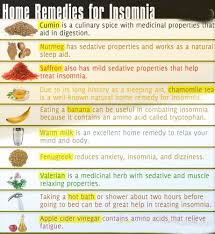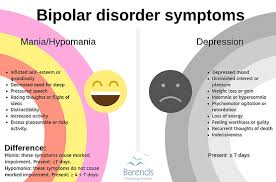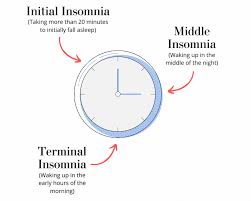Natural Ways to Treat Insomnia
Insomnia, or the inability to fall asleep or stay asleep, can have a significant impact on our overall well-being. While there are medications available to treat insomnia, many people prefer natural remedies that promote better sleep without the risk of side effects. Here are some effective natural ways to treat insomnia:
Establish a Bedtime Routine
Creating a consistent bedtime routine helps signal your body that it’s time to wind down and prepare for sleep. Try activities like reading a book, taking a warm bath, or practicing relaxation techniques before bed.
Limit Caffeine and Alcohol Intake
Caffeine and alcohol can disrupt your sleep cycle and make it harder to fall asleep. Limit your intake of these substances, especially in the hours leading up to bedtime.
Create a Comfortable Sleep Environment
Your bedroom should be conducive to sleep – cool, dark, and quiet. Invest in a comfortable mattress and pillows that support good sleep posture.
Practice Relaxation Techniques
Relaxation techniques such as deep breathing, meditation, or gentle yoga can help calm your mind and body before bed, making it easier to fall asleep.
Exercise Regularly
Regular physical activity can improve the quality of your sleep. Aim for at least 30 minutes of moderate exercise most days of the week, but avoid vigorous exercise close to bedtime.
Try Herbal Remedies
Herbal remedies like valerian root, chamomile tea, or lavender essential oil have been used for centuries to promote relaxation and improve sleep quality.
Limit Screen Time Before Bed
The blue light emitted by screens can interfere with your body’s production of melatonin, a hormone that regulates sleep-wake cycles. Avoid screens at least an hour before bedtime.
If you continue to experience insomnia despite trying these natural remedies, consult with a healthcare provider to rule out any underlying medical conditions or discuss other treatment options.
6 Natural Strategies for Better Sleep: Safe and Effective Ways to Combat Insomnia
- Natural remedies for insomnia are generally safe and have minimal side effects compared to medications.
- Establishing a bedtime routine can help signal your body that it’s time to wind down and prepare for sleep.
- Limiting caffeine and alcohol intake can improve sleep quality by reducing disruptions to the sleep cycle.
- Creating a comfortable sleep environment promotes relaxation and better restorative sleep.
- Practicing relaxation techniques like deep breathing or meditation can calm the mind and body before bed, making it easier to fall asleep.
- Regular exercise not only improves overall health but also enhances the quality of your sleep.
7 Potential Drawbacks of Natural Insomnia Treatments: Effectiveness, Time, Interactions, and More
- Effectiveness varies from person to person, and natural remedies may not work for everyone.
- It can take time to see results with natural treatments, requiring patience and consistency.
- Some herbal remedies may interact with medications or have side effects, so it’s important to consult a healthcare provider before trying them.
- Establishing a bedtime routine and practicing relaxation techniques may require discipline and commitment.
- Limiting caffeine and alcohol intake can be challenging for individuals who rely on these substances for various reasons.
- Creating a comfortable sleep environment may involve additional costs for purchasing new bedding or making room modifications.
- Regular exercise as a natural remedy for insomnia may not be suitable for individuals with certain health conditions or physical limitations.
Natural remedies for insomnia are generally safe and have minimal side effects compared to medications.
Natural remedies for insomnia offer a safe alternative with minimal side effects when compared to medications commonly used to treat sleep disorders. Unlike pharmaceutical drugs, natural remedies such as establishing a bedtime routine, limiting caffeine intake, creating a comfortable sleep environment, practicing relaxation techniques, exercising regularly, trying herbal remedies, and reducing screen time before bed are gentle on the body and promote overall well-being. By opting for natural ways to treat insomnia, individuals can improve their sleep quality without the risk of dependency or adverse reactions often associated with sleep medications.
Establishing a bedtime routine can help signal your body that it’s time to wind down and prepare for sleep.
Establishing a bedtime routine can be a highly effective way to signal to your body that it’s time to wind down and prepare for sleep. By consistently engaging in calming activities before bed, such as reading a book, taking a warm bath, or practicing relaxation techniques, you can help train your body and mind to transition into a state of relaxation conducive to falling asleep easily. This consistent routine can help regulate your internal clock and improve the quality of your sleep over time.
Limiting caffeine and alcohol intake can improve sleep quality by reducing disruptions to the sleep cycle.
Limiting caffeine and alcohol intake can significantly improve sleep quality by reducing disruptions to the sleep cycle. Caffeine, a stimulant found in coffee, tea, and energy drinks, can interfere with the body’s ability to relax and fall asleep. Similarly, alcohol may initially induce drowsiness but can disrupt the later stages of sleep, leading to fragmented and less restorative rest. By moderating consumption of these substances, individuals can create a more conducive environment for achieving deep and uninterrupted sleep, ultimately promoting better overall health and well-being.
Creating a comfortable sleep environment promotes relaxation and better restorative sleep.
Creating a comfortable sleep environment is a key proponent of natural ways to treat insomnia as it promotes relaxation and enhances the quality of restorative sleep. A bedroom that is cool, dark, and quiet can help signal to the body that it is time to unwind and prepare for sleep. Investing in a comfortable mattress and pillows that support good sleep posture can further contribute to a peaceful and rejuvenating night’s rest. By optimizing the sleep environment, individuals are more likely to experience deeper, more restful sleep, leading to improved overall well-being and daytime functioning.
Practicing relaxation techniques like deep breathing or meditation can calm the mind and body before bed, making it easier to fall asleep.
Practicing relaxation techniques such as deep breathing or meditation before bedtime can have a profound impact on improving sleep quality. By calming the mind and body, these techniques help reduce stress and anxiety levels, creating a conducive environment for falling asleep easily. Deep breathing and meditation promote a sense of relaxation, slow down racing thoughts, and encourage a state of tranquility that can enhance the body’s natural ability to transition into restful sleep. Incorporating these practices into a bedtime routine can be a powerful natural remedy for individuals struggling with insomnia.
Regular exercise not only improves overall health but also enhances the quality of your sleep.
Regular exercise offers a dual benefit when it comes to treating insomnia. Not only does it contribute to better overall health by improving cardiovascular fitness, boosting mood, and reducing stress levels, but it also plays a crucial role in enhancing the quality of sleep. Engaging in physical activity on a regular basis can help regulate your sleep-wake cycle, promote deeper and more restful sleep, and reduce the time it takes to fall asleep. By incorporating exercise into your daily routine, you not only take proactive steps towards better health but also set the stage for a more rejuvenating and refreshing night’s rest.
Effectiveness varies from person to person, and natural remedies may not work for everyone.
While natural ways to treat insomnia offer a gentle and holistic approach to improving sleep quality, one significant con is that their effectiveness varies from person to person. What works well for one individual may not have the same impact on another. Natural remedies such as relaxation techniques, herbal supplements, and lifestyle changes may not work for everyone struggling with insomnia. It’s essential to recognize that each person’s body and sleep patterns are unique, and finding the right combination of strategies to address insomnia can be a trial-and-error process. Consulting with a healthcare provider can help determine personalized solutions for better sleep.
It can take time to see results with natural treatments, requiring patience and consistency.
One drawback of relying on natural ways to treat insomnia is that it often takes time to see noticeable results. Unlike medications that may provide immediate relief, natural treatments such as establishing a bedtime routine, practicing relaxation techniques, or trying herbal remedies require patience and consistency. It can take time for the body to adjust to these lifestyle changes and for the effects to be fully realized. Consistent effort and dedication are necessary to experience long-term improvements in sleep quality through natural methods.
Some herbal remedies may interact with medications or have side effects, so it’s important to consult a healthcare provider before trying them.
Some herbal remedies used to treat insomnia may have potential risks, such as interactions with medications or unwanted side effects. It is crucial to seek guidance from a healthcare provider before incorporating herbal remedies into your sleep routine. Consulting a healthcare professional can help ensure that the herbal remedy is safe for you and does not interfere with any medications you may be taking. Your healthcare provider can provide personalized advice based on your individual health conditions and needs, helping you make informed decisions about managing insomnia naturally.
Establishing a bedtime routine and practicing relaxation techniques may require discipline and commitment.
Establishing a bedtime routine and practicing relaxation techniques as natural ways to treat insomnia may present a challenge due to the discipline and commitment required. It can be difficult to consistently follow a set routine, especially when faced with busy schedules or distractions that can disrupt bedtime habits. Similarly, committing to regular relaxation practices demands dedication and perseverance to make them a habitual part of one’s daily routine. Overcoming these hurdles may require conscious effort and motivation to prioritize sleep health and well-being, but the long-term benefits of improved sleep quality make the commitment worthwhile.
Limiting caffeine and alcohol intake can be challenging for individuals who rely on these substances for various reasons.
Limiting caffeine and alcohol intake can be challenging for individuals who rely on these substances for various reasons. For some, caffeine is a necessary stimulant to combat fatigue and stay alert throughout the day, making it difficult to cut back without experiencing withdrawal symptoms. Similarly, alcohol may serve as a coping mechanism for stress or anxiety, leading individuals to depend on it for relaxation and sleep induction. Breaking these habits requires significant effort and support, as the physical and psychological dependence on caffeine and alcohol can pose obstacles to adopting healthier sleep practices.
Creating a comfortable sleep environment may involve additional costs for purchasing new bedding or making room modifications.
One potential drawback of relying on natural ways to treat insomnia, such as creating a comfortable sleep environment, is the possibility of incurring additional costs. Improving your sleep environment may require investing in new bedding, pillows, mattresses, or making room modifications to ensure optimal conditions for restful sleep. These expenses can add up and may not be feasible for everyone, especially those on a tight budget. It’s important to consider the financial implications when implementing changes to your sleep environment as part of your insomnia treatment plan.
Regular exercise as a natural remedy for insomnia may not be suitable for individuals with certain health conditions or physical limitations.
Regular exercise is often recommended as a natural remedy for insomnia due to its ability to improve sleep quality and promote overall well-being. However, it’s important to note that exercise may not be suitable for everyone, especially individuals with certain health conditions or physical limitations. For example, those with chronic pain, cardiovascular issues, or mobility restrictions may find it challenging to engage in regular physical activity. In such cases, alternative approaches to treating insomnia should be explored in consultation with a healthcare provider to ensure safety and effectiveness.



